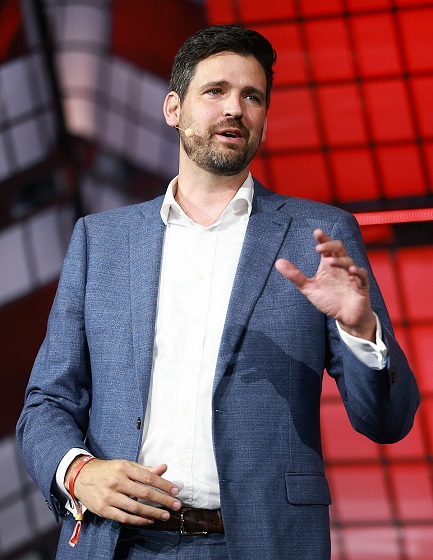Health
Medical organizations and media let Canadians believe gender medicine is safe and universally accepted. It’s not

 The Macdonald Laurier Institute
The Macdonald Laurier Institute
14 physicians sign statement for Inside Policy
Many Canadians are likely unaware that several other medically advanced countries—like Britain and multiple EU member states—have restricted hormone therapies and surgical interventions which have documented harms and no clear benefits, writes a group of Canadian doctors.
Following similar actions by peer countries around the world, United States President Donald Trump signed a Jan. 28 executive order declaring his administration will not “fund, sponsor, promote, assist, or support” so-called “gender-affirming” medical treatment for minors—which prescribes hormone therapies and surgical interventions that change sex-determined physical characteristics. Now, a recent report from the U.S. Department of Health and Human Services confirms what many other medical bodies and advanced countries have already recognized: the science and reasoning behind this form of medicine is deeply flawed.
This news appears shocking to many ordinary Canadians, as well as legacy media outlets like The Globe and Mail. That’s largely because Canadian medical organizations and governing bodies—presumed by the public to speak for physicians—have vocally supported “affirmation”: an approach that unquestioningly supports the choice of patients to undergo these treatments. This has left the public with the false impression that such treatments are safe, effective, and universally accepted by physicians. We, a group of 14 Canadian physicians, feel it is vital for the public to know that many—and perhaps most—physicians believe there must be restrictions on gender therapies that permanently change a minor’s body.
Many Canadians are likely unaware that similar restrictive policies are already in place in other medically advanced countries, like Britain and several EU member states.
Most notably, the U.K. government commissioned Dr. Hilary Cass to produce what has become known as the Cass Report, a thorough review of the literature around the treatment for gender dysphoria. Cass investigated whether there is actually proof that these therapies “save lives,” as many activists will insist, or if there is evidence that such interventions make patients’ lives better? Dr. Cass concluded that although medical treatments for gender dysphoria can cause significant harm (as is the case with any medical intervention), there is no conclusive proof of benefit. Hormone therapy and surgeries can lead to chronic pain, incontinence, sterility, and more. They are permanent and irreversible. Therefore, Britain and many other countries restrict most of these treatments for minors.
Here in Canada, Alberta has been the leader in following the evidence. In 2024, the province introduced legislation mandating a minimum age before children could consent to make these permanent, life-altering changes to their bodies. Many physicians were involved with drafting the well-considered legislation. Many more applauded it—some publicly, others quietly.
Despite that, the usual suspects leapt forward to pillory Premier Danielle Smith’s government. The CBC, Globe and Mail, and other legacy media outlets ran headlines like: “Medical experts warn Danielle Smith’s restrictions on gender affirming care will harm vulnerable youth in Alberta.” Most articles quoted bodies such as the Alberta Medical Association (AMA), Canadian Pediatric Society (CPS), and the venerable Canadian Medical Association (CMA), all of which very quickly released statements decrying Alberta’s stance. Such articles give the public the impression that these organizations speak for physicians, expressing a majority, if not unanimous, view.
These organizations do not speak for all physicians. It is hard to know what percentage of physicians oppose “gender-affirming care” for minors because many are afraid to speak their minds in a climate where any dissent is couched as “transphobia.” Physicians who speak out have been subject to investigations and penalties by regulatory organizations, particularly after the passing of federal Bill C-4 in 2022, which potentially makes it a criminal offence to refuse support of a child’s belief that he or she is transgender.
In 2025, one needs to take statements from physicians’ groups with a grain of salt.
Engagement with the CMA is in decline. In 2018 (when membership remained mandatory for doctors in many provinces), the association claimed 87,000 members. By 2024, membership dropped to 75,000 despite an increase in the number of physicians in Canada. Many are members only in a nominal sense, and have little meaningful involvement with the CMA. Rather than taking the pulse of the medical profession as a whole, seeking diverse viewpoints, and making statements that represent this range of views, the CMA is captured and directed by a radical progressive fringe. Unfortunately, this fringe retains the historical imprimatur of being the “voice of physicians” in Canada.
The same phenomenon has occurred with provincial physicians’ organizations like the AMA, which collect mandatory dues but seek minimal engagement from members. Activists have exploited this vacuum to take the helm of these organizations.
This same phenomenon can be seen in organizations like the CPS, CMA, and similar specialty bodies. Their mission statements and missives increasingly read like Marxist screeds rather than wise and measured comment. Just one such example is the CMA’s “ReconciliACTION Plan,” which “challenges anti-Indigenous structures in the health care system.” When physicians with more conservative and scientifically-based views attempt to engage these groups, they have often been met with indifference or hostility, and are systematically prevented from holding positions within these organizations.
This shows that these organizations do not speak for all physicians. When mainstream media rely on such organizations as their sole source for “expert” comment, they miss the real story and avoid engaging with facts. Legacy media portrays this as a battle between science-denying right-wing bigots on one side, and empathetic experts on the other. This could not be further from the truth.
The science is not “settled” by any means. So-called “gender-affirming care” has proven risks and harms, but unproven benefits. It is not “life-saving,” but it is permanently life-altering. We are 14 of the many physicians who strongly believe that minors should not be allowed to make such decisions. The self-proclaimed “experts” do not speak for us.
Written and signed by,
Dr. Arney Lange MSc, MD, FRCPC
Dr. Brent McGrath, MD, FRCPC
Dr. Chris Millburn MD
Dr. David Zitner MD
Dr. Dion Davidson MD, FRCSC, FACS
Dr. Duncan Veasey MD
Dr. Julie Curwin MD FRCPC
Dr. Lori Regenstreif MD, CCFP (AM), FCFP
Dr. Mark D’Souza MD, CCFP (EM), FCFP
Dr. Martha Fulford MD, FRCPC
Dr. M.J. Ackermann MD
Dr. Richard Gibson MD, FCFP
Dr. Roy Eappen MDCM, FRCP (C)
Dr. Shawn Whatley MD, FCFP (EM)
This statement is an initiative of the Macdonald-Laurier Institute, written and signed by concerned physicians from across Canada who are calling for a more careful, evidence-based, and ethically responsible approach to the treatment of gender issues.
Alberta
Alberta government’s plan will improve access to MRIs and CT scans

From the Fraser Institute
By Nadeem Esmail and Tegan Hill
The Smith government may soon allow Albertans to privately purchase diagnostic screening and testing services, prompting familiar cries from defenders of the status quo. But in reality, this change, which the government plans to propose in the legislature in the coming months, would simply give Albertans an option already available to patients in every other developed country with universal health care.
It’s important for Albertans and indeed all Canadians to understand the unique nature of our health-care system. In every one of the 30 other developed countries with universal health care, patients are free to seek care on their own terms with their own resources when the universal system is unwilling or unable to satisfy their needs. Whether to access care with shorter wait times and a more rapid return to full health, to access more personalized services or meet a personal health need, or to access new advances in medical technology. But not in Canada.
That prohibition has not served Albertans well. Despite being one of the highest-spending provinces in one of the most expensive universal health-care systems in the developed world, Albertans endure some of the longest wait times for health care and some of the worst availability of advanced diagnostic and medical technologies including MRI machines and CT scanners.
Introducing new medical technologies is a costly endeavour, which requires money and the actual equipment, but also the proficiency, knowledge and expertise to use it properly. By allowing Albertans to privately purchase diagnostic screening and testing services, the Smith government would encourage private providers to make these technologies available and develop the requisite knowledge.
Obviously, these new providers would improve access to these services for all Alberta patients—first for those willing to pay for them, and then for patients in the public system. In other words, adding providers to the health-care system expands the supply of these services, which will reduce wait times for everyone, not just those using private clinics. And relief can’t come soon enough. In Alberta, in 2024 the median wait time for a CT scan was 12 weeks and 24 weeks for an MRI.
Greater access and shorter wait times will also benefit Albertans concerned about their future health or preventative care. When these Albertans can quickly access a private provider, their appointments may lead to the early discovery of medical problems. Early detection can improve health outcomes and reduce the amount of public health-care resources these Albertans may ultimately use in the future. And that means more resources available for all other patients, to the benefit of all Albertans including those unable to access the private option.
Opponents of this approach argue that it’s a move towards two-tier health care, which will drain resources from the public system, or that this is “American-style” health care. But these arguments ignore that private alternatives benefit all patients in universal health-care systems in the rest of the developed world. For example, Switzerland, Germany, the Netherlands and Australia all have higher-performing universal systems that provide more timely care because of—not despite—the private options available to patients.
In reality, the Smith government’s plan to allow Albertans to privately purchase diagnostic screening and testing services is a small step in the right direction to reduce wait times and improve health-care access in the province. In fact, the proposal doesn’t go far enough—the government should allow Albertans to purchase physician appointments and surgeries privately, too. Hopefully the Smith government continues to reform the province’s health-care system, despite ill-informed objections, with all patients in mind.
Health
RFK Jr’s argument for studying efficacy of various vaccines

From HHS Secretary Robert F Kennedy’s Facebook Page
-

 Energy2 days ago
Energy2 days agoEby should put up, shut up, or pay up
-

 Daily Caller2 days ago
Daily Caller2 days agoUS Eating Canada’s Lunch While Liberals Stall – Trump Admin Announces Record-Shattering Energy Report
-

 Business2 days ago
Business2 days agoThe Liberal budget is a massive FAILURE: Former Liberal Cabinet Member Dan McTeague
-

 COVID-192 days ago
COVID-192 days agoFreedom Convoy leader Tamara Lich to appeal her recent conviction
-

 Business2 days ago
Business2 days agoCarney’s budget spares tax status of Canadian churches, pro-life groups after backlash
-

 Justice2 days ago
Justice2 days agoCarney government lets Supreme Court decision stand despite outrage over child porn ruling
-

 espionage1 day ago
espionage1 day agoU.S. Charges Three More Chinese Scholars in Wuhan Bio-Smuggling Case, Citing Pattern of Foreign Exploitation in American Research Labs
-

 Business17 hours ago
Business17 hours agoCarney budget doubles down on Trudeau-era policies









